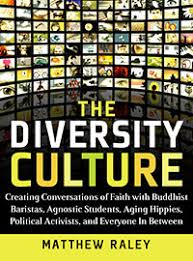Love wins.
Say it with me…
“Love wins!”
We are about to go outside to watch the sun rise on this Easter morning. This is not a victory of good over evil, or life over sin. When we go outside and feel the sun on our face this morning, we are witness to the fact that love wins.
I’m going to read some short passages of scripture and when I prompt you, I’m going to ask that we end each reading with the phrase; LOVE WINS.
Matthew 5:43-44
"You have heard that it was said, "You shall love your neighbor and hate your enemy.' But Jesus says to us, Love our enemies and pray for those who persecute us.” From this we know: LOVE WINS
Matthew 22:36-39
Someone asked: "Teacher, which commandment in the law is the greatest?" Jesus said to him, " "You shall love the Lord your God with all your heart, and with all your soul, and with all your mind.' This is the greatest and first commandment. And a second is like it: "You shall love your neighbor as yourself.' From these commandments, we know that: “LOVE WINS”
John 13:35
By this everyone will know that you are my disciples, if you have love for one another." This morning we declare that: LOVE WINS
John 15:9-17
As the Father has loved me, so I have loved you; abide in my love. If you keep my commandments, you will abide in my love, just as I have kept my Father's commandments and abide in his love. I have said these things to you so that my joy may be in you, and that your joy may be complete. "This is my commandment, that you love one another as I have loved you. No one has greater love than this, to lay down one's life for one's friends. You are my friends if you do what I command you. I do not call you servants any longer, because the servant does not know what the master is doing; but I have called you friends, because I have made known to you everything that I have heard from my Father. You did not choose me but I chose you. And I appointed you to go and bear fruit, fruit that will last, so that the Father will give you whatever you ask him in my name. I am giving you these commands so that you may love one another. We are your friends and will continue to abide in the fact that: LOVE WINS
Romans 5:8
But God proves his love for us in that while we still were sinners Christ died for us. This morning as we celebrate Jesus’ resurrection, we are witness to the fact that: LOVE WINS
Romans 8:35-39
What will separate us from the love of Christ? Will hardship, or distress, or persecution, or famine, or nakedness, or peril, or sword? As it is written, "For your sake we are being killed all day long; we are accounted as sheep to be slaughtered." No, in all these things we are more than conquerors through him who loved us. For I am convinced that neither death, nor life, nor angels, nor rulers, nor things present, nor things to come, nor powers, nor height, nor depth, nor anything else in all creation, will be able to separate us from the love of God in Christ Jesus our Lord. Even though these things will try to separate us from Christ’s love, we know that: LOVE WINS
1st Corinthians 13
If I speak in the tongues of mortals and of angels, but do not have love, I am a noisy gong or a clanging cymbal. And if I have prophetic powers, and understand all mysteries and all knowledge, and if I have all faith, so as to remove mountains, but do not have love, I am nothing. If I give away all my possessions, and if I hand over my body so that I may boast, but do not have love, I gain nothing.
Love is patient; love is kind; love is not envious or boastful or arrogant or rude. It does not insist on its own way; it is not irritable or resentful; it does not rejoice in wrongdoing, but rejoices in the truth. It bears all things, believes all things, hopes all things, endures all things. Love never ends.
But as for prophecies, they will come to an end; as for tongues, they will cease; as for knowledge, it will come to an end. For we know only in part, and we prophesy only in part; but when the complete comes, the partial will come to an end. When I was a child, I spoke like a child, I thought like a child, I reasoned like a child; when I became an adult, I put an end to childish ways. For now we see in a mirror, dimly, but then we will see face to face. Now I know only in part; then I will know fully, even as I have been fully known. And now faith, hope, and love abide, these three; and the greatest of these is love.
Through the resurrection of Jesus Christ, we have seen face to face that: LOVE WINS
Let us now go outside to finish the Easter Morning Liturgy and proclaim with every fiber of our being that LOVE WINS.

